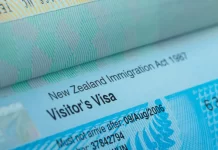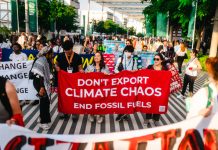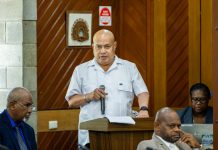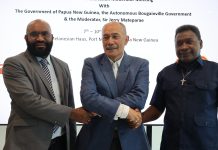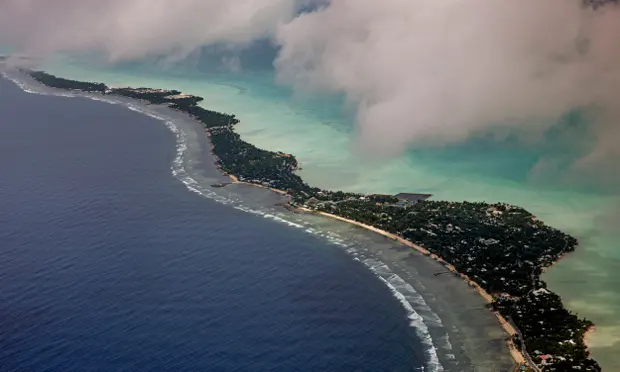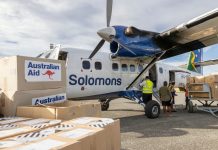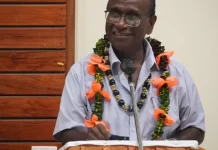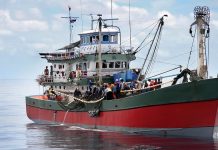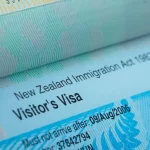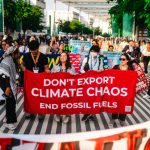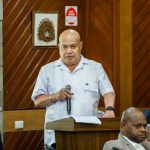The Pacific Climate Change Centre in collaboration with the Australian National University hosted a Pacific webinar to provide the most up to date synthesis of relevant climate change information to diverse Pacific Island audiences.
The webinar was held on 25 August 2021 with more than 300 participants that attended the event.
The recently released Intergovernmental Panel on Climate Change’s (IPCC) Sixth Assessment Report on the Earth’s climate, is a clear warning for the Pacific and the world that we are running out of time to avoid the negative impacts of a rapidly changing climate.
The report, which is only produced once every seven years, focuses on the physical science of climate change, covering Pacific climate phenomena including temperature rise, rainfall, marine heatwaves, tropical cyclones, sea level rise, ocean acidity and coastal flooding. IPCC reports are the world’s most authoritative sources of climate science.
The Sixth Assessment Report reinforced key messages from earlier reports, that urgent change is needed to keep global warming below the 1.5 degrees’ limit target that many countries have agreed to work towards as part of the Paris Agreement. But what does that mean for the Pacific?
Director General of the Secretariat of the Pacific Regional Environment Programme (SPREP), host of the PCCC, Kosi Latu, said, “This is our last chance, all of us must act now. We must call upon humanity, we must have the political will to act – everyone must make the changes needed to reduce greenhouse gas emissions today.”
In his welcoming remarks he stated that the report is clear, urgent changes must be made to limit global warming to the Paris Agreement’s 1.5oC while there is still time.
“For us in the Pacific, the report spells out alarming consequences starting with us first, if the world fails to listen to the warnings in the report. Contributing to less than 1% of the world’s total greenhouse gases, our Pacific islands are on the frontline, and amongst the most vulnerable, to the impacts of climate change,” Latu said.
The Chief Executive Officer of the Ministry of Natural Resources and Environment of Samoa, Frances Brown-Reupena, as the keynote speaker emphasised that urgent and transformative action is requited to keep global warming to 1.5 oC.
She further elaborated that Pacific island countries are at the frontline of climate change impacts, climate change is a global problem requiring urgent action from all countries. “We can no longer ignore the devastating impacts of climate change.”
The event included an esteemed panel of climate change experts, including Professor Mark Howden, Director of The Australian National University Institute for Climate, Energy & Disaster Solutions. Professor Howden is an IPCC a Vice Chair of Working Group II and was directly involved in the final approval process of the report.
While delivering a presentation on the key findings in the report for the Pacific, Professor Howden highlighted the seriousness of the situation, but also cause for hope, “All greenhouse gas scenarios are likely to exceed 1.5oC in the 2030s. The good news is that in a very low-emission scenario we will only temporarily exceed 1.5 oC but then bring temperatures back down – we can make up for lost ground.”
An enthusiastic panel discussion followed the presentation, where attendees asked questions and engaged in constructive dialogue on the best way forward for the Pacific.
Joining Professor Howden for the panel discussion were IPCC authors Dr Morgan Wairiu, a Pacific Coordinating Lead Author of Working Group II and Dr Michael Grose, a Lead Author of Working Group I and Senior Research Scientist for the Commonwealth Scientific and Industrial Research Organisation.
They were also joined by representatives of key Pacific climate organisations, including Mr Espen Ronneberg, Director of Climate Change for the Pacific Community (SPC) and Salesa Nihmei, Meteorology and Climatology Adviser for SPREP
The webinar is one of the ways in which the Pacific Climate Change Centre hopes to help Pacific people to better understand the graveness of the report and the seriousness with which we need to act to avoid a fast-approaching climate catastrophe.
For more information on this webinar, please contact pccc@sprep.org
SOURCE: SPREP/PACNEWS


